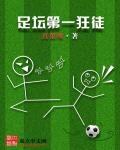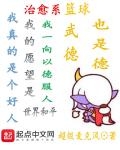Chapter 57: Dream Ending
"Hahahaha, Brother Ding'an, what do you think of my performance in this game?"
You can't blame Li Xiangping for being so excited, and his excitement is not only because after winning this game, he has actually passed the preliminaries and entered the top 32 of this year's "Samsung Cup". The more important reason is -
Today's game with Mr. Kobayashi was played entirely by Li Xiangping himself. That's right, from the first move to the last move, all were made by Li Xiangping himself! This is the main reason why Li Xiangping is really excited.
You have to know that this was the first game he had played in full since he traveled through time. Not only was it a personal victory, but he also defeated a famous general like Kobayashi Koichi with just one move...
Therefore, Li Xiangping's current mood is completely understandable. As soon as he leaves the competition venue, he can't wait to show off in front of the great chess master Ren Shi. This behavior is of course completely normal.
"My dear friend Xiangping played very well. Ding'an was impressed. Throughout today's game, my dear friend Xiangping played very smoothly and was very good at controlling his moves, especially the 'break in' move. To be honest with you, when I first saw this move, Ding'an did not understand its meaning and was really worried about you. I did not expect that this move was a thunderbolt and the highlight of this game. Alas, my dear friend Xiangping's chess skills are so superb that Ding'an is ashamed of himself."
Li Xiangping chuckled, enjoying the fact that his cheats were flattering him . Li Xiangping was not the kind of person who had no self-awareness, and he would not lose his way just because he won a game of chess, thinking that he was really "excellent in chess" or something like that.
But what can I say? Everyone has vanity, let alone a playboy like Li Xiangping, whose vanity is actually stronger than that of ordinary people.
At this moment, Li Xiangping thought of another thing. He suddenly recalled that ever since he traveled through time with the plug-in Old Shi, his image in front of the great chess master Shi... seemed to have always been taller.
Except for the first game after his rebirth, in which he made a few bad moves in the match between Xiuqin and Xiudou, the rest of the time was almost all "highlight moments". What he showed in front of Lao Shi seemed to be either "dog moves" or classic moves that had been honed by mankind for thousands of years.
Therefore, in order to maintain his "glorious image", Li Xiangping once again pretended to be cool in front of his plug-in:
"Haha, Brother Ding'an, you are too kind. The step of 'breaking in' you just mentioned is quite common. This is the strategy I came up with after thinking deeply all night yesterday to defeat the enemy. If Brother Ding'an still has something that I don't understand, I am willing to explain it to you in detail."
"I would like to hear the details. I would like to hear the details."
Li Xiangping was in high spirits. Such an opportunity to show off was not something that could be encountered easily:
"Well, let's go find a chessboard first."
After the two returned to the room, Li Xiangping began to analyze the reasons for his victory in this game in detail. It should be said that what Lao Shi said was right. The key to Li Xiangping's victory today was the "break-in" move. It is no exaggeration to say that the move was the reason for his victory.
It's just that that move was not originally created by Li Xiangping. The "plan to defeat the enemy after thinking deeply all night" was just his pretense.
In real history, this move first appeared in a game between Chinese chess player Chang Hao and Li Canghao a year or two later.
Li Xiangping vaguely remembered that it seemed to be the semi-final of a world championship. Chang Hao won the final game with such a move, thus defeating Li Canghao 2-1 in the three-game match, becoming the first non-Korean chess player to defeat Li Canghao in a three-game match, achieving a breakthrough that seemed very remarkable at the time.
Unfortunately, in the final, Chang Hao lost to Li Canghao's master Cao Xunxuan with a score of 1 to 2, and failed to break through the "Cao-Li Master-Disciple Iron Curtain" which was even more legendary at the time.
Of course, the reason why Li Xiangping remembered this move was not entirely because of this story, but more importantly, the technical connotation of this move. Li Xiangping even thought that it was not an exaggeration to say that Chang Hao's move at that time made the once very popular "Kobayashi Style" withdraw from the stage of history.
More experienced chess fans all know that in the last 20 years of the 20th century, because of Mr. Kobayashi Koichi, the "Kobayashi Style" became very popular. It is considered one of the most popular layout routines of that era. This routine is not only loved by ordinary chess fans, but is also very popular in professional chess competitions.
However, after entering the new century, this layout routine suddenly became unpopular, especially in professional chess competitions, and the "Kobayashi Style" almost disappeared. So much so that before Li Xiangping traveled through time, he would occasionally feel a sense of familiarity when he met chess friends playing the "Kobayashi Style" when playing chess online, because regardless of the level of such chess friends, they should have been playing chess for a long time.
Li Xiangping believes that the reason for this situation is closely related to the match between Chang Hao and Li Canghao.
In fact, Li Xiangping still doesn't know until now whether Chang Hao had done that trick beforehand or it was just a "flash of inspiration" during the competition. However, it is a fact that the trick he used almost made the "Kobayashi Style" disappear.
Why is this so? In short, Chang Hao's move at that time fundamentally shook the theoretical basis for the existence of the "Kobayashi School".
That's right, Li Xiangping thinks so! To understand this statement, we must first understand the theoretical basis of "Kobayashi Style".
Of course, more experienced chess fans all know that there are actually two types of the so-called "Kobayashi Style". One is the "Star plus Wuyou Corner", which is called the "Kung Fu Type Kobayashi Style", and the other is what Li Xiangping and Mr. Kobayashi played today, and it was also the actual combat between Chang Hao and Li Canghao back then. This "Kobayashi Style" is very similar to the "Chinese Style", especially the "Disguised Chinese Style", and can be regarded as a "speed-type layout", so it is called the "Speed Type Kobayashi Style".
Let’s not talk about the “Kung Fu Kobayashi Style” mentioned above, and just talk about the “Speed Kobayashi Style”. What is the theoretical basis of this style?
In fact, it is the same as other "speed-type layouts". The core idea is to first quickly deploy your own pieces, and then achieve your strategic goals through the very common idea of "attack to gain". It's just that different "speed-type" layout routines have different focuses.
Specifically speaking of the "Speed-Type Kobayashi Style", chess fans with a certain level of skill all know that the focus of this layout routine, or in other words, after this routine is played, the center of gravity of the entire chessboard will naturally fall on the side road where the "small eye" is located.
Based on countless actual combat practices in the past, everyone believes that by using this "speed-type Kobayashi style", it is easy to better protect one's own space during the attack. It is precisely because this routine perfectly fits the "attack to profit" idea, and the advantage of being the first to act seems to be very sufficient, so in the past 20 years, this "speed-type Kobayashi style" has become so popular.
The power of the method discovered by Chang Hao lies here.
Don't you think you can completely defend the edge space? Well, I will "drive in" deeply, just like the game in real history and Li Xiangping's actual game today. I don't expect the piece I "drive in" to survive. However, when you eat my big dragon, you will find that you are already at a disadvantage.
This is of course very subversive, and it can be said that it is this subversiveness that has shaken the foundation of the existence of the "Kobayashi School".
So where does this subversiveness come from? Or why does it put you at a disadvantage if you eat the opponent's dragon at the beginning?
This involves a key word in Go, and this key word is, of course, the legendary "rescuing qi and eating".
It can be said that it was precisely because of this keyword that amateur masters like Li Yuanhu and Lao Cai could not judge the situation clearly at the time. They only saw that Li Xiangping lost a large piece at the beginning, but forgot that the place was originally the territory of black chess. Therefore, the death of a white chess piece in that place did not cause as much local loss as they imagined.
He also didn't notice that the black piece had to "reserve and capture" that place, so the white piece's loss would be even more negligible.
The most important thing is, because the black chess wants to "reserve and capture", that part of the piece leaves 9 pieces of material for capture for the white chess. These 9 pieces are extremely large and the black chess must respond to them at any time.
We must be honest. It is precisely because of the existence of these 9 huge pieces of materials that we can judge that when this change is completed, White has gained an advantage.
You have to know that those 9 pieces of ko materials are like 9 time bombs for Black. After eating a useless dragon, Black's future moves will be restricted. Facing any possibility of ko by White, Black can only swallow his anger. If Black plays such a game, he will undoubtedly feel very frustrated.
Why did Kobayashi Koichi give up so quickly today? First, he was much better than Li Yuanhu and his team, and he should have known that he didn't gain any advantage after eating a big dragon.
Second, Li Xiangping thought that he just couldn't stand the frustration, so he chose to give up in the middle of the game with less than 100 moves.
It was precisely because Mr. Kobayashi admitted defeat after less than 100 moves that Li Xiangping's trip to South Korea had a dreamlike ending.
In the 5 games, one was won by the opponent's resignation. Except for this game, in the remaining 4 games, except for the game with Choi Myung-hoon where the opponent surrendered after more than 160 moves, the other 3 games ended within 100 moves.
For Li Xiangping, who participated in this competition as an amateur chess player, could there be a more fantastic result than this?
After telling the chess master Shi everything he knew and showing off in front of his cheater, Li Xiangping said contentedly:
"Alright, Brother Ding'an, the next stage of the competition will not be held until early December. The opponents in the next stage will definitely be stronger. Let's go back to China tomorrow and concentrate on preparing for the next stage of the competition."






